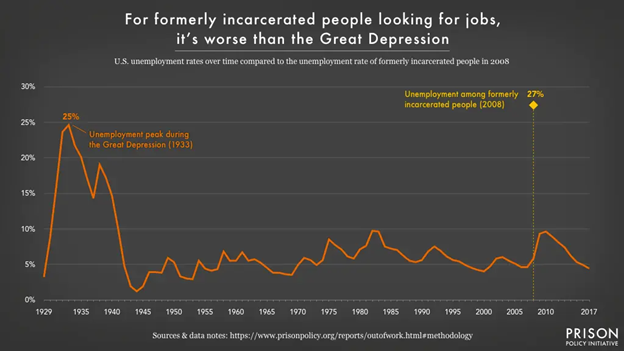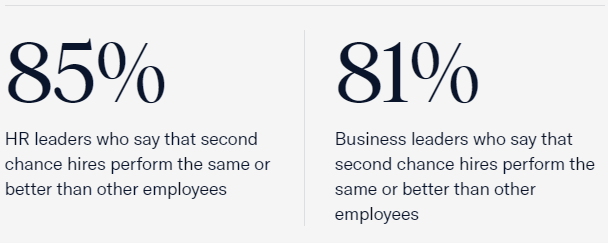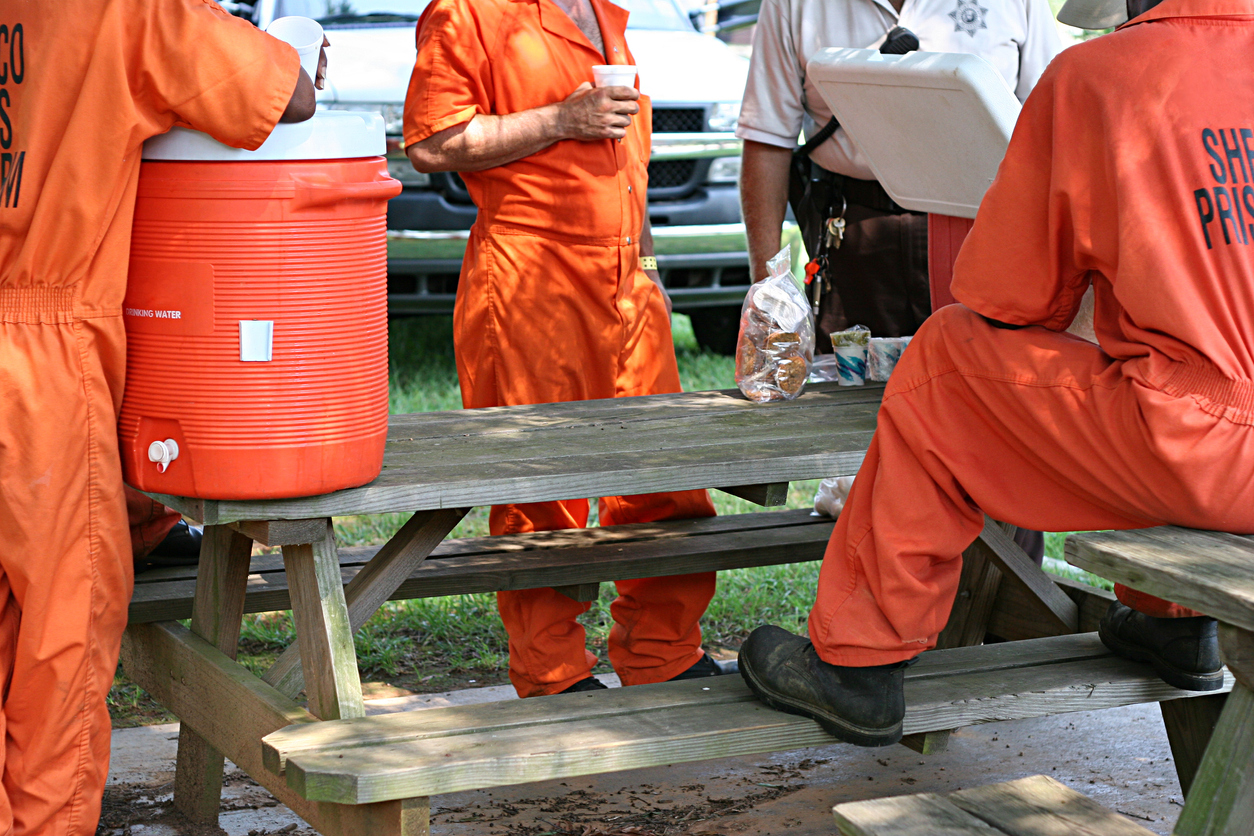How Second Chance Hiring Betters Businesses and Communities
Today, the United States is still suffering from a significant labor shortage. Even though in 2021, the U.S. added a record 3.8 million jobs, there was still a deficit of 3.4 million Americans participating in the workforce. More recent studies show that there are approximately 10 million job openings, with only around 6 million unemployed workers. While many companies have gone to great lengths to try and attract new talent, they still overlook one resource: second-chance hiring.
The concept of second-chance hiring isn’t new, yet it’s still largely overlooked. Second-chance hiring is the practice of hiring individuals who have been convicted of a crime. While this may seem controversial, the reality is that second-chance hiring can benefit businesses and communities, and we’ll explain why.
Key Takeaways
- Due to the stigma associated with their past actions, those with a criminal record are often denied employment opportunities, even after completing rehabilitation and job training programs.
- Today, the unemployment rate in the U.S. sits at approximately 3.7%
- Updated data shows that roughly two-thirds of previously incarcerated individuals are considered jobless at any given point within four years of their release.
Second Chance Hiring Gives a Future to Those Who Need Help the Most
On average, more than 600,000 individuals are released from both state and federal prisons. Unfortunately, more than two–thirds of those individuals will find themselves back in jail within three years of their release, with nearly half reincarcerated.
While there are dozens of reasons why this could happen, one of the most common reasons cited is a lack of purpose, employment, and inability to support themselves or their families. So they fall back into the cycle of crime and wind up back behind bars.
In one of the most cited recidivism studies, the Prison Policy Initiatives found that the percentage of unemployed adults with a criminal record in 2008 exceeded the general unemployment rate experienced during the Great Depression.

Source: The Prison Policy Initiative
Unfortunately, in today’s age, most of those seeking a job post-incarceration will have a tough time finding employment once they’ve been released. This is not always from a lack of effort on their part or lack of experience, but the stigma associated with having a criminal record.
It’s often associated with a “bad” or “dangerous” person. People don’t realize that many inmates have been convicted of minor crimes, and even those who have committed serious crimes could have taken their rehabilitation seriously and are now looking for a second chance at life.
Second chance hiring is a great way to provide a new opportunity for those with a criminal record yet serious about turning their lives around. Here at Televerde, we have several clients that have seen just how powerful a second chance can be.
We have been investing our time and energy in second-chance hiring and have even set up call centers inside U.S. prisons in hopes of helping some of these individuals find the confidence they need to succeed in the outside world.
For example, we worked with Loreal Blackwell while she was serving time at Rockville Correctional Facility in Indiana. She worked as a contractor for Televerde for eight years. Now that she has served her time, she is employed with us as a Business Development Representative.
Why Companies Don’t Need to Be Gun-Shy about Embracing Talent Impacted by Incarceration
Hiring managers and human resource professionals have historically hesitated to hire talent impacted by incarceration. The theory behind this hesitation was that these incarcerated individuals could not perform the job to the expected standard due to a lack of education or a poor work ethic.
That myth has been debunked thanks to recent research into education provided to incarcerated individuals. One of the latest studies on the topic showed that of prison inmates surveyed, approximately 70 wanted to participate in some sort of educational training program. Another 23% said that they had some job training during their incarceration.
If you are looking to hire, a candidate impacted by incarceration could be more of an asset than you think. You have to vet your candidates as you would any other candidate.
Yes, check their criminal history, but get feedback from those they worked closely with while incarcerated, as they may be able to give you more insight into the candidate and how well they may fit in with your team. Then, look into any educational or job training they completed while serving their time. If they have a good rapport with their case manager and the educational training required for the position you’re looking to fill, then this is a candidate that you want to consider.
According to the U.S. Chamber of Commerce, data from SHRM shows that second-chance hiring is good for both the individual and the community and the companies hiring them.
The numbers show that over half of HR professionals (53%) and 38% of business leaders say they would be willing to hire individuals with criminal records. When asked, roughly two in three HR professionals stated that they have already started hiring individuals with a criminal background and 66% said they would be willing to work with these individuals in the future because they are hard-working individuals, often working equal to or better than other employees.

Source: The U.S. Chamber of Commerce
Second-chance hiring benefits the business community and the individual being hired and can also help the community as a whole. By hiring individuals with a criminal record, the community can see benefits such as:
- Decrease in crime rates
- Decrease in poverty/homelessness
- Increased employment rates/decreased unemployment rates
- Lower recidivism rates
Learn More About the Impact of Second Chance Hiring with Televerde
Many benefits come along with second chance hiring. Not only is it good for the individual given a chance to re-enter society, but it is also good for businesses and the entire community. If you are considering hiring someone with a criminal background, do your research and ask the right questions. You may be surprised at how much of an asset they can be.
Learn more about the true impact of second chance hiring by visiting the Televerde blog today.

